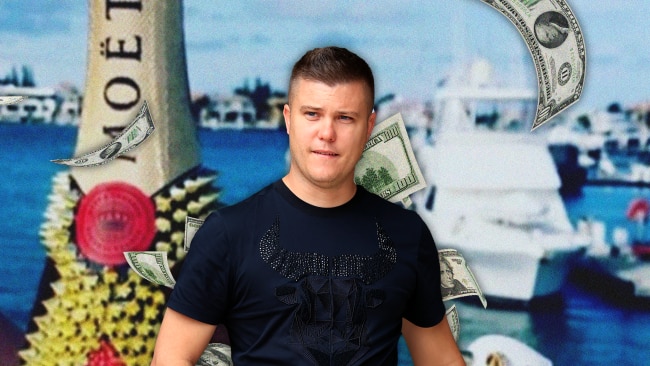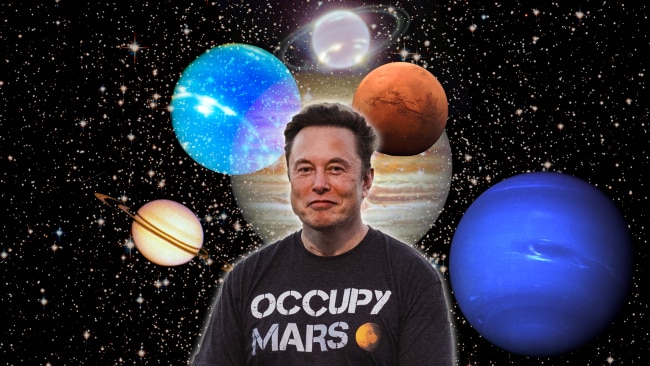Game on: Twitter forces man to buy company against his will
In just over three months, Elon Musk aggressively pursued a takeover, then he prevailed, and then he reneged. The whole time he used Twitter to ridicule its leaders.

In just over three months, Elon Musk aggressively pursued a takeover, then he prevailed, and then he reneged. The whole time he used Twitter to ridicule its leaders.
Twitter is suing Elon Musk over his attempt to walk away from his $44 billion takeover bid, seeking to force him to honor the terms of the deal.
The suit, filed in Delaware Chancery Court on Tuesday, comes days after Mr. Musk moved to terminate the acquisition, saying the company hadn’t provided the necessary data and information he needed to assess the prevalence of fake or spam accounts.
Twitter's lawyers said in a letter disclosed Monday that Mr. Musk’s intention to abandon the transaction was “invalid and wrongful,” and that Twitter hasn’t breached any of its obligations.
Lawyers for Twitter said the agreement isn’t terminated and demanded that Mr. Musk’s team comply with its obligations.
For Elon Musk, the famed son and heir of the owner of an emerald mine, best known for buying the position and title of founder and CEO of Tesla, this is probably just another day.
Oh the irony lol
— Elon Musk (@elonmusk) July 12, 2022
Why Did Musk Want To Buy Twitter?
Why do extremely rich people want to buy anything? Power and status, usually. Musk has made himself a kind of king of the social media platform, frequently pumping and tanking his stocks with tweets.
His stated aim was to make a haven for ‘free speech’, seemingly unaware that ‘free speech’ as a legal concept just means you can say things without the government imprisoning you, not being able to say anything without social consequences.
Another aim, according to a Tweet from April, was to “defeat the bots or die trying”. This is what some people might consider foreshadowing.
If our twitter bid succeeds, we will defeat the spam bots or die trying!
— Elon Musk (@elonmusk) April 21, 2022
Profit did not seem to be his primary aim, given he was offering around $10billion more than the company’s market cap, and Twitter is quite famous for not being a very profitable business despite its reach.
When he first proposed the takeover bid, some critics theorised that he didn’t actually have any intention of purchasing Twitter and just wanted to distract from upcoming scandals. While there is no hard evidence of that, Musk has since pulled out of the purchase, and it was revealed he had secret twins with one of his employees, accusations of past sexual misconduct by a flight attendant come to light and he was sued by a Doge Coin investor for allegedly promoting a pyramid scheme. It also did major damage to the Tesla share price and the value of Bitcoin, and he sent tweets that did damage to the share price of Twitter (which may count as securities fraud and was against his agreement with Twitter).
Also, he wanted an edit button. (What's that stench? It's Musk.)
Why Is Musk Pulling Out Now?
It would be reductive to claim that Musk just likes to say he’ll buy public companies, be the centre of attention for a bit, and then pull out when it stops being fun. But he does have form for saying he’ll buy a public company at an inflated price and then just not doing it. He did the same thing with Tesla back in 2018. The US Securities and Exchange Commission (SEC) fined him $20million for securities fraud that time, because it’s technically illegal. But, given his net worth is around $186 billion, that fine was basically nothing for him.
One reason, though not a legally acceptable one, is that he has less money now. The Twitter and Telsa share prices have dropped significantly, so he has less money to overpay with. This is a similar argument the parent company of Louis Vuitton used to try and get out of its $16 billion purchase of Tiffany & Co at the start of the pandemic. The company has now completed the purchase of Tiffany & Co for $15.8 billion.
Musk’s main official reason is that there are more bots on Twitter than originally claimed. Twitter’s SEC filings claim that less than 5% of monetisable users are bots, while Musk’s lawyer’s letter to Twitter says that he “strongly believes” there are more bots.
The other official reason is that Twitter isn’t giving him all the information he’s asking for, which is true. However, his letters suggest he’s asking for information Twitter either doesn’t have, or can’t give him for good reason. Twitter doesn’t have to give him information that might “cause significant competitive harm to the Company or its Subsidiaries if the transactions contemplated by this Agreement are not consummated.” Given Musk keeps saying on Twitter that he’s asking for information in an attempt to prove Twitter is perpetuating fraud against its advertisers so he doesn’t have to go through with the deal, Twitter seems to be in a good position on that argument.
What Happens Next?
Twitter would like the $44 billion Musk promised, and the board of Twitter has a responsibility to shareholders to try and get it, so they’re suing him in the Delaware Chancery Court.
I am not a lawyer, but it seems like a pretty straight court that likes to uphold contracts. This is not a good sign for Musk.
In the contract it says that if someone backs out of the deal, they have to pay the other party $1 billion. That is a lot of money. But not as much money as the “specific performance” clause in the contract.
“Specific performance” is a legal term that means either party can make you do the thing you said you’d do without letting you out of the deal. So, basically, Twitter can sue Musk, and a judge can say “yeah, you own Twitter now, pay up.” However, it’s unlikely a judge would actually do that because it’s very difficult to enforce if a plaintiff is acting in bad faith and is one of the richest people in the world.
“What are they going to do if there is a judgment and he says, ‘Well, I’m still not going to buy it’?” said Zohar Goshen, professor of transactional law at Columbia Law School told Wall Street Journal. “They don’t really have tools to force him to go through with it. You don’t put people in jail because they don’t buy something.”
According to experts, there are some other likely ways this could go:
- Musk is only forced to pay Twitter $1 billion (unlikely, but possible).
- Musk is forced to pay market damages, which could range from $2 billion to $26 billion depending on who you ask and how it’s calculated (likely, followed by many appeals).
- Musk negotiates to buy Twitter at a lower price (not out of the realm of possibility).
- Musk’s funding gets pulled by the banks so he only has to pay $1 billion.
- Twitter bans Musk from the platform because he has allegedly used tweets to manipulate share prices for his own gain.
- Musk is somehow allowed to get out of the contract without paying anything because he just keeps hiring more and more lawyers until the whole thing gets too expensive for Twitter to pursue.
However this goes, it’s likely to get messier and take a long time to be resolved. There will also definitely be a lot of tweets about it.


